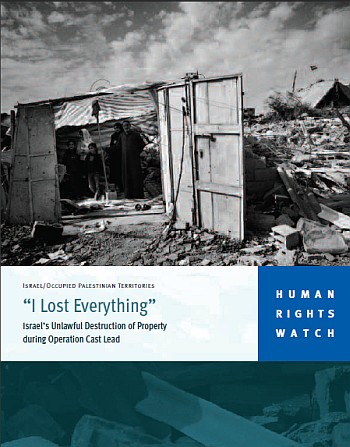 Israel should investigate the unlawful destruction of civilian property during the 2009 Gaza hostilities and lift the blockade that hinders residents from rebuilding their homes, Human Rights Watch said in a new report released today.
Israel should investigate the unlawful destruction of civilian property during the 2009 Gaza hostilities and lift the blockade that hinders residents from rebuilding their homes, Human Rights Watch said in a new report released today.
The 116-page report, “‘I Lost Everything’: Israel’s Unlawful Destruction of Property in the Gaza Conflict” documents 12 separate cases during Operation Cast Lead in which Israeli forces extensively destroyed civilian property, including homes, factories, farms, and greenhouses, in areas under their control, without any lawful military purpose. Human Rights Watch’s investigations, which relied upon physical evidence, satellite imagery, and multiple witness accounts at each site, found no indication of nearby fighting when the destruction occurred.
Israel has claimed that its forces destroyed civilian property only when Palestinian armed groups were fighting from it, or were using it to store weapons, hide tunnels, or advance other military purposes. Israel also claims that many Gazan homes were destroyed by Hamas booby-traps. The evidence in the incidents that Human Rights Watch investigated does not support such claims.
“Almost 16 months after the war, Israel has not held accountable troops who unlawfully destroyed swaths of civilian property in areas under their control,” said Sarah Leah Whitson, Middle East director at Human Rights Watch. “Israel’s blockade continues to keep Gazans from rebuilding their homes, meaning that Israel is still punishing Gaza’s civilians long after the fighting is over.”
Human Rights Watch found evidence in the 12 cases indicating that Israeli forces carried out the destruction for either punitive or other unlawful reasons, violating the prohibition under international humanitarian law – the laws of war – against deliberately destroying civilian property except when necessary for lawful military reasons. In seven of the cases, satellite imagery corroborated eyewitness accounts that Israeli forces destroyed many structures after establishing control over an area and shortly before Israel announced a ceasefire and withdrew its forces from Gaza on January 18, 2009.
Israel’s comprehensive blockade of the Gaza Strip, a form of collective punishment against civilians imposed in response to Hamas’s takeover of Gaza in June 2007, has prevented significant reconstruction, including in areas where Human Rights Watch has documented destruction. Israel has allowed imports of cement for several repair projects, but United Nations Secretary-General Ban Ki-moon noted in late March that these were “a drop in a bucket” compared to housing needs.
Israeli officials insist that the blockade – which had already degraded humanitarian conditions in Gaza before Operation Cast Lead – will remain in place until Hamas releases Staff Sergeant Gilad Shalit, the Israeli soldier captured in 2006, rejects violence, and fulfills other political conditions. Hamas’s prolonged incommunicado detention of Shalit violates the prohibition of cruel and inhuman treatment and may amount to torture.
Many goods are being smuggled into Gaza through tunnels beneath the southern border with Egypt, and many damaged buildings have been repaired at least partially with bricks made from smuggled cement and recycled concrete rubble. However, these improvised building materials are reportedly of poor quality and cannot be used for large reconstruction projects. In the areas of Gaza where Human Rights Watch found that Israeli forces had destroyed homes in areas under their control, there has been virtually no reconstruction of destroyed buildings, indicating that the inadequate supply of reconstruction materials still leaves these materials prohibitively expensive for most of Gaza’s residents, more than three-quarters of whom are impoverished.
Egypt shares responsibility for the collective punishment of Gaza’s civilian population due to its own closure of Gaza’s southern border. Except in limited circumstances, Egypt refuses to allow the passage of goods or people through the border crossing it controls at Rafah.
The laws of war prohibit attacks on civilian objects, including residential homes and civilian factories, unless they become a legitimate military objective, meaning that they are providing enemy forces a definite military advantage in the circumstances prevailing at the time. The report examines incidents of destruction that suggest violation of the laws-of-war prohibition of wanton destruction – the term used to describe extensive destruction of civilian property not lawfully justified by military necessity. Such destruction would be a grave breach of the Fourth Geneva Conventions of 1949, which is applicable in Gaza. Individuals responsible for committing or ordering such destruction should be prosecuted for war crimes.
Human Rights Watch did not include in its report cases in which the destruction was not extensive, or the evidence suggested any possibility that Israel’s destruction of the property in question could have been militarily justified or based on mistaken information.
Human Rights Watch documented the complete destruction of 189 buildings, including 11 factories, 8 warehouses and 170 residential buildings – roughly 5 percent of the total property destroyed in Gaza – leaving at least 971 people homeless. In the cases investigated in the neighborhoods of Izbt Abd Rabbo, Zeitoun, and Khoza’a, Israeli forces had destroyed virtually every home, factory, and orchard within certain areas, indicating an apparent plan of systematic destruction in these locations. The destroyed industrial establishments include juice and biscuit plants, a flour mill, and seven concrete factories. Human Rights Watch did not determine whether these incidents represent a broader pattern, but Israel should thoroughly investigate these cases – including the lawfulness of any relevant policy decisions – and appropriately punish persons found to have acted unlawfully.
“The evidence shows that, in these cases, Israeli forces gratuitously destroyed people’s homes and livelihoods,” said Whitson. “If the Israeli government doesn’t investigate and punish those responsible, it would be effectively endorsing the suffering that these civilians have endured.”
Israel Defense Forces (IDF) lawyers told Human Rights Watch that the IDF is probing many of the cases of property destruction documented in this report. However, these are not criminal investigations by military police, but so-called operational debriefings that do not involve contacting Palestinian witnesses. Of the 150 investigations opened to date into Operation Cast Lead, 36 are criminal investigations and the rest are operational debriefings. Two of these criminal cases include allegations of damage to individual buildings.
The only reported penalty imposed for unlawful property destruction during Operation Cast Lead was an unspecified disciplinary measure taken immediately by the commander in the field against one soldier for an incident involving “uprooting vegetation” in Gaza. The IDF has provided no further details regarding the incident or the disciplinary measure. Overall, to date Israel has criminally sentenced only one soldier and has disciplined four other soldiers and commanders for violations during the Gaza operation.
Notably, Israel has not conducted thorough and impartial investigations into whether policy decisions taken by senior political and military decision-makers, including pre-operation decisions, led to violations of the laws of war, such as the unlawful destruction of civilian infrastructure.
Israel has published the results of a military probe into one case documented in this report, which found an attack on a flour mill to be lawful. The probe’s conclusions, however, are contradicted by available video and other evidence. (In late March 2010, Israel announced that it had approved cement imports to repair the flour mill.) The IDF has not provided explanations for the other 11 incidents that Human Rights Watch documented and previously raised with the IDF.
Hamas authorities are not known to have taken any meaningful steps to investigate or hold accountable members of Hamas or other Palestinian armed groups responsible for serious laws-of-war violations either before, during, or since Operation Case Lead, primarily rocket attacks at populated areas in Israel. However, under the laws of war, unlawfulness by one party to a conflict does not justify unlawful acts by another.
Under the laws of war, not all destruction of civilian property is unlawful. At times, Hamas and other Palestinian armed groups used civilian structures to engage Israeli forces and to store arms; they also booby-trapped civilian structures and dug tunnels underneath them.
In addition, Human Rights Watch criticized Hamas and other Palestinian groups for firing rockets from populated areas. In such cases, property damage caused by Israeli counter-strikes against armed groups may have been lawful “collateral damage.” Palestinian armed groups also may have been responsible for damage to civilian property in cases in which IDF attacks triggered secondary explosions of weapons or explosives stored by armed groups, which damaged nearby structures. The destruction of civilian property during immediate fighting or in order to permit the movement of Israeli forces because adjoining roads were mined and impassable may be lawful as well, depending on the circumstances.
Human Rights Watch’s investigations considered these possibilities and focused on 12 cases where the evidence indicates that there was no lawful justification for the destruction of civilian property. In these incidents, the IDF was not engaging Palestinian forces at the time they destroyed the property – in all cases fighting in the area had stopped – and in most cases the property destruction occurred after Israeli forces had eliminated or dispersed Palestinian fighters in the area and consolidated their control, such as by occupying houses, stationing tanks in streets or on nearby hills, and undertaking continuous surveillance from manned and unmanned aircraft.
The mere possibility of future military use by armed groups of some civilian structures in these areas – such as to set booby-traps, store weapons, or build tunnels – cannot under the laws of war justify the wide-scale and at times systematic destruction of whole neighborhoods, as well as of factories and greenhouses that provided food and other items intended for the civilian population.
Public statements by some Israeli political leaders suggest a willingness to destroy civilian infrastructure in Gaza to deter rocket attacks by armed groups against Israel. Human Rights Watch documented numerous cases in which Palestinian armed groups in Gaza launched rocket attacks against Israeli population centers during and before Operation Cast Lead in violation of the laws of war. During the fighting, approximately 800,000 Israelis were within range of hundreds of rocket attacks, which killed three Israeli civilians and seriously injured several dozen others. Individuals who willfully conducted or ordered deliberate or indiscriminate rocket attacks on civilians are responsible for war crimes. However, as noted, laws of war violations by one party to a conflict do not justify violations by another party.
Israel controls the Gaza Strip’s land, air, and sea access with the exception of a 15-kilometer border with Egypt. Since the end of the conflict, Israel has approved limited shipments of food, fuel, and material into Gaza, but these fall far short of the humanitarian needs of the population. It has allowed construction materials designated for specific projects, but continues to deny entry to cement, iron bars, and other basic construction materials. While there are valid Israeli security concerns that Hamas could use cement to build or strengthen military bunkers and tunnels, humanitarian aid organizations report that Israel has refused to consider a mechanism to ensure the independent monitoring of the end-use of construction materials. Israel should urgently seek to create such a mechanism.
“The United States, the European Union, and other states should urgently call upon Israel and Egypt to open Gaza’s borders to reconstruction materials and other supplies essential for the civilian population,” Whitson said.

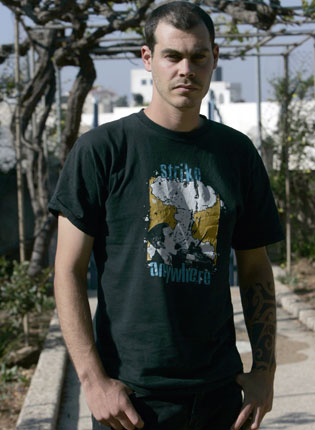 Of all the criminals involved with the 2008 Gaza war, an Israeli leftist will be going to jail for riding his bike against the war in Tel Aviv. Tel Aviv Magistrates court judge Yitzhak Yitzhak convicted Israeli leftist Jonathan Pollak of illegal assembly for his participation in a January 2008 Critical Mass ride against the siege on Gaza and then sentenced him to three months imprisonment that will begin on January 11th, 2011. Pollak was the only one detained at the said protest, and was accused of doing nothing other than riding his bicycle in the same manner as the rest of the protesters. The conviction activates an older three-month suspended sentence imposed on Pollak in a previous trial for protesting the construction of the Separation Barrier. An additional three month prison term was also imposed for the current conviction, which will be served concurrently. His imprisonment is part of a clear strategy of silencing dissent in the Israeli left.
Of all the criminals involved with the 2008 Gaza war, an Israeli leftist will be going to jail for riding his bike against the war in Tel Aviv. Tel Aviv Magistrates court judge Yitzhak Yitzhak convicted Israeli leftist Jonathan Pollak of illegal assembly for his participation in a January 2008 Critical Mass ride against the siege on Gaza and then sentenced him to three months imprisonment that will begin on January 11th, 2011. Pollak was the only one detained at the said protest, and was accused of doing nothing other than riding his bicycle in the same manner as the rest of the protesters. The conviction activates an older three-month suspended sentence imposed on Pollak in a previous trial for protesting the construction of the Separation Barrier. An additional three month prison term was also imposed for the current conviction, which will be served concurrently. His imprisonment is part of a clear strategy of silencing dissent in the Israeli left. If he was confident that that was the case, why would Bibi draw attention to the fact? Perhaps because he knew that some of the leaks would serve his interests in multiple ways, not the least of which being that they further damage the credibility Mahmoud Abbas as top political representative of the Palestinian people. In other words, they would help reinforce Abbas’ position as a leader possessing enough authority to negotiate but not enough to make a deal.
If he was confident that that was the case, why would Bibi draw attention to the fact? Perhaps because he knew that some of the leaks would serve his interests in multiple ways, not the least of which being that they further damage the credibility Mahmoud Abbas as top political representative of the Palestinian people. In other words, they would help reinforce Abbas’ position as a leader possessing enough authority to negotiate but not enough to make a deal.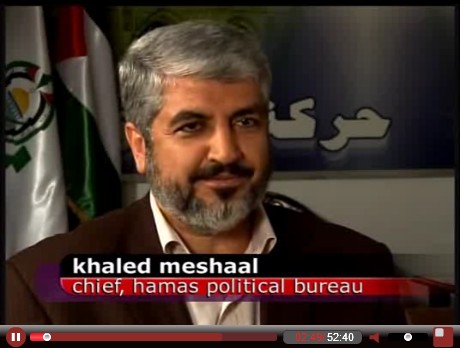
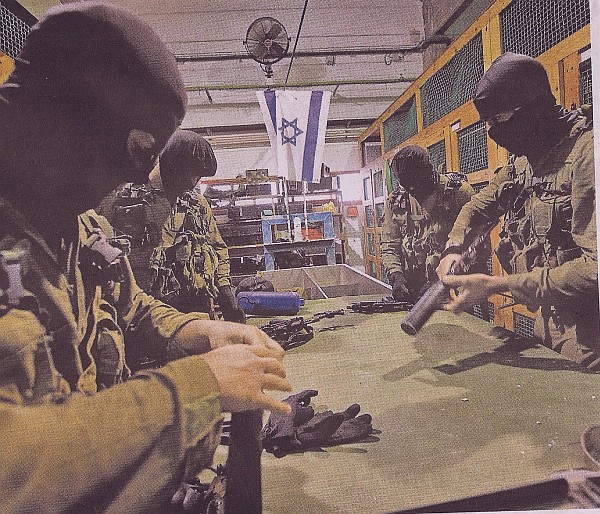
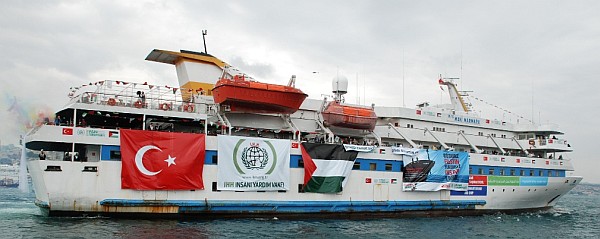
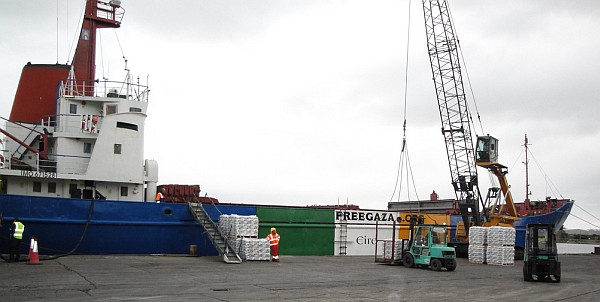

 The siege of Gaza, which Israeli tightened when Hamas took control in June 2007, makes women’s lives much more complicated.
The siege of Gaza, which Israeli tightened when Hamas took control in June 2007, makes women’s lives much more complicated. British Prime Minister Gordon Brown announced on Thursday plans to stop politically-motivated campaign groups from securing arrest warrants for visiting foreign officials. In a March 3 editorial in the
British Prime Minister Gordon Brown announced on Thursday plans to stop politically-motivated campaign groups from securing arrest warrants for visiting foreign officials. In a March 3 editorial in the 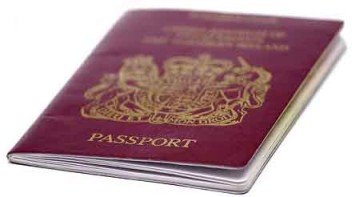 Nevertheless, there is now reason to think that with the murder of Mahmoud al Mabhouh in Dubai, Israel crossed a line that strains the limits of Western tolerance. Western governments would have paid scant attention to this event were it not for one egregious error by Mossad: its flagrant disregard for the integrity of foreign passports.
Nevertheless, there is now reason to think that with the murder of Mahmoud al Mabhouh in Dubai, Israel crossed a line that strains the limits of Western tolerance. Western governments would have paid scant attention to this event were it not for one egregious error by Mossad: its flagrant disregard for the integrity of foreign passports. Israeli leaders such as Israel’s minister of industry, trade and labor,
Israeli leaders such as Israel’s minister of industry, trade and labor,